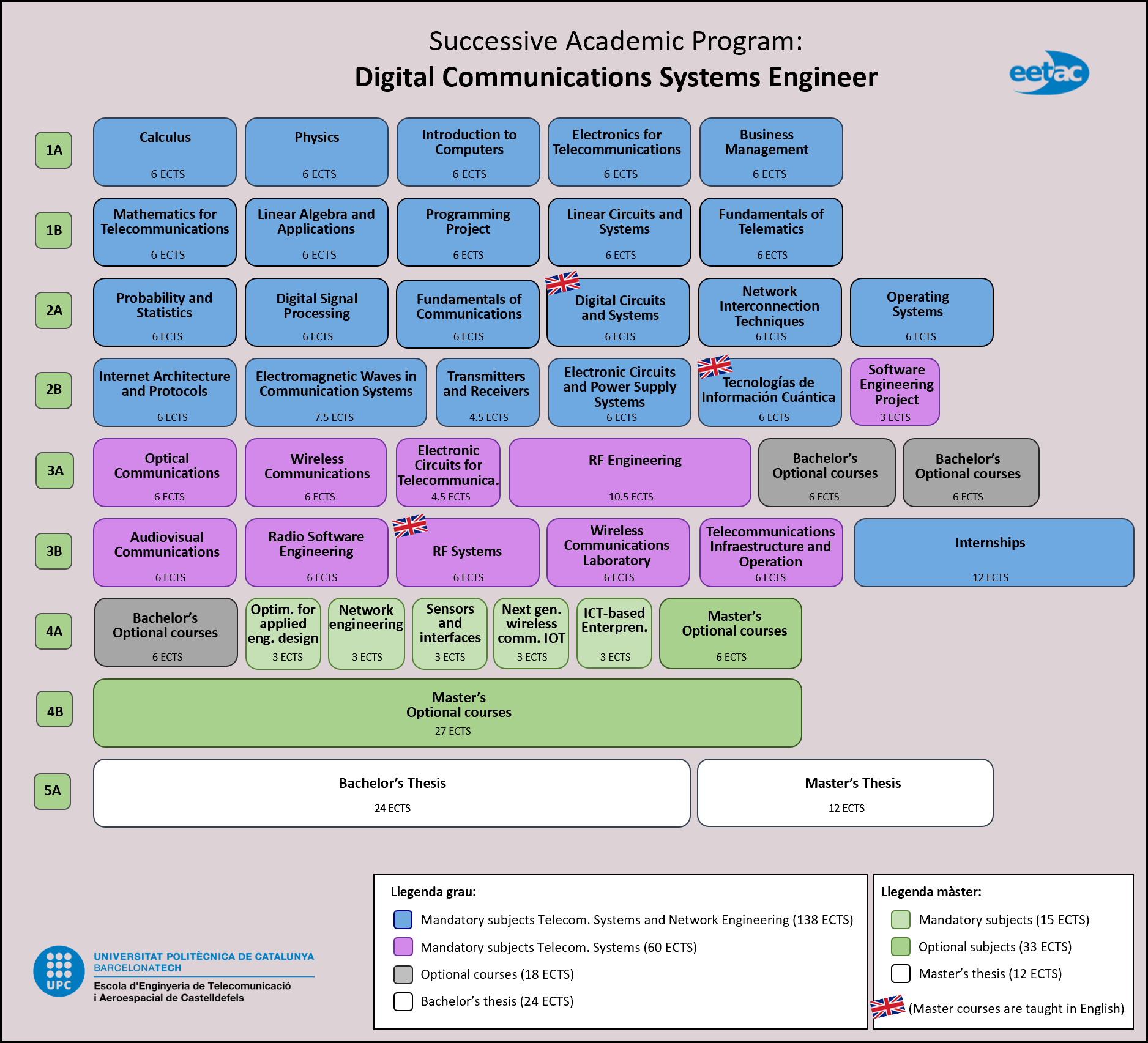Digital Communications Systems Engineering
The objective of this Successive Academic Program is to train professionals specialized in the analysis and design of current and future digital communications systems and is made up of:
- Bachelor’s degree in Telecommunications Systems (240 ECTS)
-
Master’s Degree in Applied Telecommunications and Engineering Management (MASTEAM) (60 ECTS)
In this program, students will acquire solid training to create, design, implement, and operate communication systems that are based on the generation, transmission, reception, and processing of electrical, acoustic, and optical signals, and the processing of the associated information. They will learn the fundamentals and applications that will enable them to design, implement and operate any communication product, infrastructure and service based on radio, fixed or mobile, terrestrial or satellite, or optical communications systems. With the master's degree they will complement the training on the application and management of cutting-edge communications systems in different fields, including the design of new communication architectures. They will also acquire the ability to apply this knowledge to the different verticals in continuous evolution, such as 5G and 6G networks, Internet of Things, industry 4.0, health, or advanced audiovisual services, among others, following sustainability-based criteria and professional ethics. They will also learn basic concepts of production mechanisms, markets and entrepreneurship.
Access to this program is done directly in the university pre-registration application.
Pre-registration in one of these programs provides several advantages to the students, such as the possibility of duing the bachelor's and the master's thesis simultaneously, the option to follow an accelerated itinerary to be able to obtain the bachelor's and master's degrees in less time than doing those studies separately (only suitable for students with high academic performance), and the possibility of accessing official doctoral programs by having passed 300 ECTS between the bachelor's and master's degrees. However, students of these programs do not acquire the obligation to follow the master's degree: they can always leave the program and finish only the bachelor degree studies, and they are not obliged to follow the accelerated itinerary either. These programs has a strong component of internationalization, which is why various subjects of the bachelor's degree and all those of the master's degree are offered in English.
The itinerary described below allows you to complete the program in 9 semesters (4.5 years), instead of the 10 semesters that it would take to complete the bachelor's degree and the master's degree separately. However, it is not mandatory to follow it, and the program can be completed in more time. Note, however, that following the indications of the Real Decreto 822/2021, access to the master's degree can only be done when the student has 30 ECTS or less pending (24 ECTS from the TFG and 6 credits from subjects or internships).

Share: